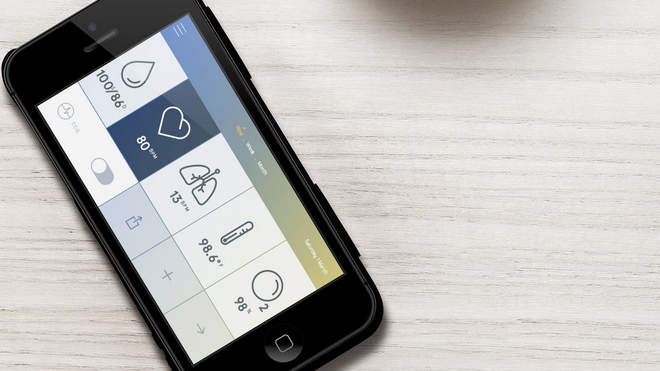Spying smartphones could save your life
Never mind the NSA - we need iPod Nannies

Sign up for breaking news, reviews, opinion, top tech deals, and more.
You are now subscribed
Your newsletter sign-up was successful
There's a big problem with wearable health tech: the people who need it won't buy it.
With the obvious exceptions - people who have conditions that mean they need to keep a close eye on what their bodies are up to - the kind of people who'll embrace wearable health gadgets are the kind of people who don't really need them.
If you care enough about your health to drop hundreds on health kit, you're probably not the kind of person who runs screaming from salad bars.
We don't need health sensors for healthy people, we need them for everybody else.
We need smartphones that will spy on us.
Pizza power
I'm not being judgemental here. In a former life I was Scotland's most enthusiastic smoker, and while I don't do that any more I still enjoy a deep-fried pizza - don't knock if you haven't tried it - and come out in a rash if I think about exercising. I'm as interested in health apps as I am in morris dancing, cricket or One Direction.
That's why a smartphone could save my life.
Sign up for breaking news, reviews, opinion, top tech deals, and more.
Everybody's going to die but many people die far too early. For example, it's estimated that a quarter of deaths from heart disease are preventable and the risk factors are both well-established and easy to monitor; they're things such as blood pressure, high cholesterol, lack of physical activity and so on.
The problem, of course, is that you have to monitor those things and many of us don't.
We're pretty good at pretending that unhealthy behaviours aren't affecting us - and the unhealthier the behaviour, the more in denial you can become. When I was torching entire tobacco plantations before breakfast the last person I wanted to see was my doctor. What's the point of going to see someone who'll only tell you to stop smoking?
Wearables might do a better job. If our devices come stuffed with sensors in the way they currently do with accelerometers and compasses, they could keep a close eye on how we're doing.
For example, the Wello smartphone case includes a handful of sensors that monitor your heart rate, blood pressure, oxygen levels, temperature and so on; Apple is reportedly working on audio sensors that can detect irregularities in arteries.
The trick is to make health monitoring the rule, not the exception. Given the choice between spending a couple of hundred on a health gadget or dropping the same sum on Haribo, the sweets will win every time - but if the sensors are in the gadgets we'll want to buy anyway, they can sneak in under our radar.
There are lots of issues to address - privacy is the biggie - but if wearables can get it right, they might warn us of imminent problems without just nipping our heads about eating more salad.
Sensors could be the canaries in our personal coalmines, spotting great danger when there's still time to do something about it.
Saving us from ourselves? Maybe we need an app for that.

Contributor
Writer, broadcaster, musician and kitchen gadget obsessive Carrie Marshall has been writing about tech since 1998, contributing sage advice and odd opinions to all kinds of magazines and websites as well as writing more than twenty books. Her latest, a love letter to music titled Small Town Joy, is on sale now. She is the singer in spectacularly obscure Glaswegian rock band Unquiet Mind.